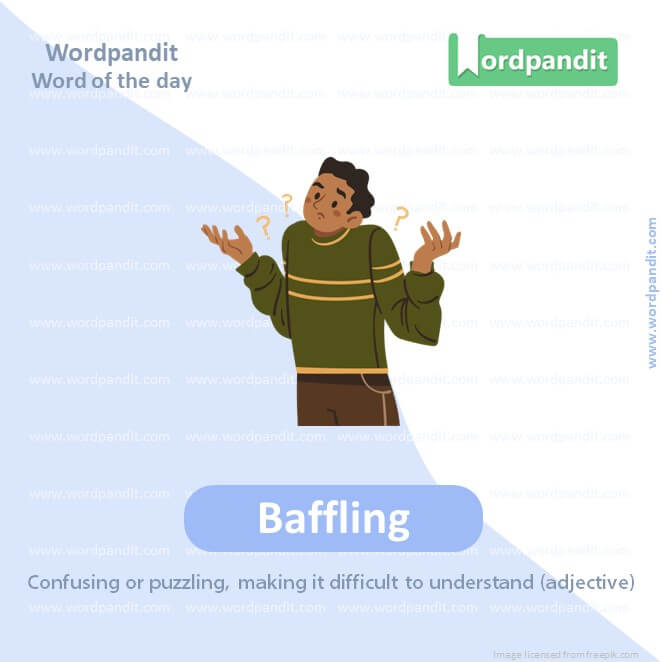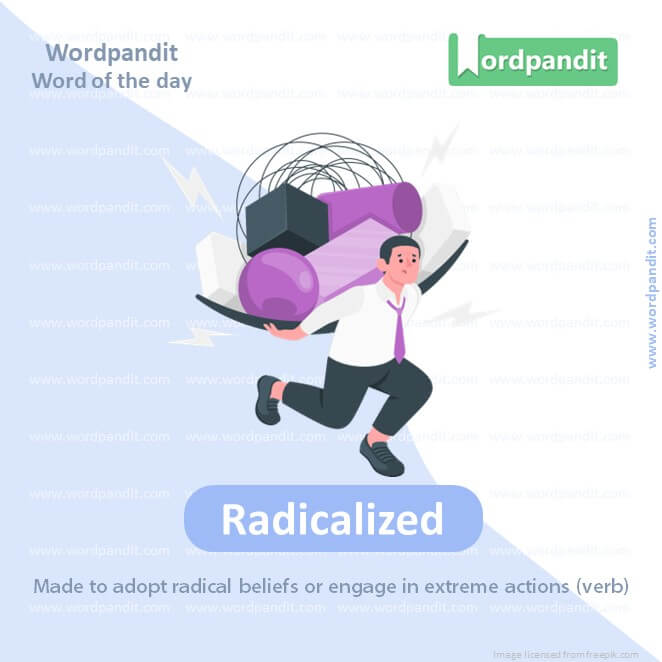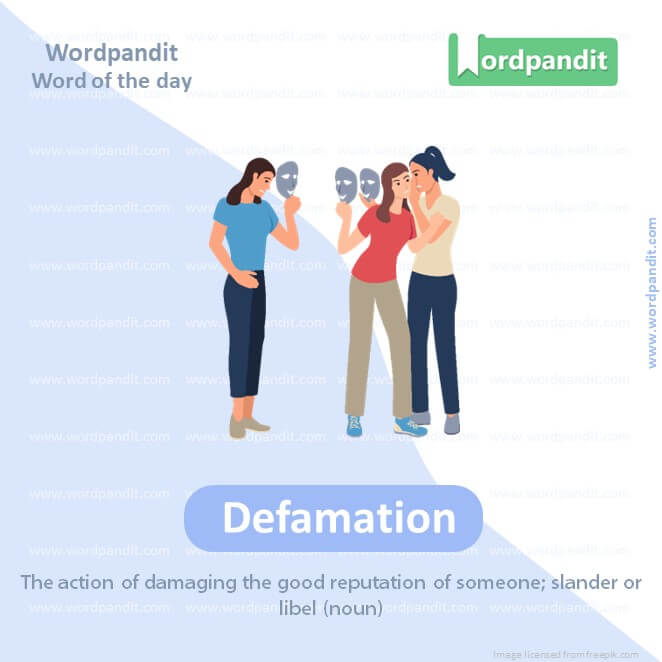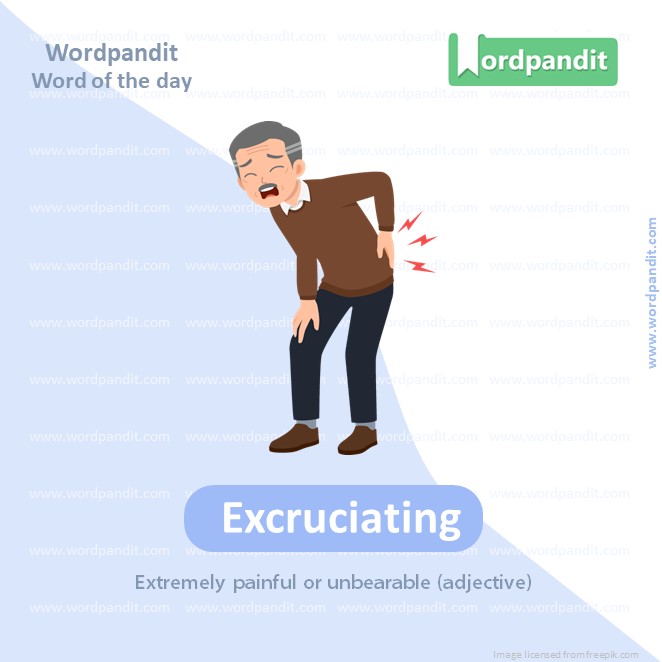Daily Vocabulary Words: List of Daily Used Words in Leading International Newspapers
Hi there. Welcome to this special section @ Wordpandit.
Our endeavour here is very simple: to highlight important daily vocabulary words, which you would come across in leading newspapers in the country. We have included the following newspapers in our selection:
• The New York Times
• The Washington Post
• Scientific American
• BBC
• The Guardian
• Psychology Today
• Wall Street Journal
• The Economist
We are putting in extensive work for developing your vocabulary. All you have got to do is be regular with this section and check out this post on a daily basis. This is your repository of words that are commonly used and essentially, we are posting a list of daily used words. Hence, this has significant practical application as it teaches you words that are used commonly in leading publications mentioned above.
Visit the website daily to learn words from leading international newspapers.
WORD-1: Deference
CONTEXT: It was such a softball interview that Putin professed exasperation at the deference and said he wished he’d been asked sharper questions.
SOURCE: New York Times
EXPLANATORY PARAGRAPH: Imagine you’re playing a game where your friend is the leader, and you always listen to their instructions and follow their lead. Showing respect and obedience to someone because you believe they are more knowledgeable or important is called “deference.” It’s like acknowledging someone’s authority or expertise by listening to them and following their guidance.
MEANING: Respectful submission or yielding to the judgment, opinion, or wishes of another, often out of recognition of their superior knowledge or authority (noun).
PRONUNCIATION: DEF-er-uhns
SYNONYMS: respect, reverence, obedience, submission, compliance, homage
USAGE EXAMPLES:
1. The students showed deference to their teacher by listening attentively in class.
2. In many cultures, showing deference to elders is considered a sign of respect.
3. His deference to his mentor’s advice helped him succeed in his career.
4. The committee members followed the chairman’s decision out of deference to his leadership.
WORD-2: Combustion
CONTEXT: We could spend money making buildings more fireproof. Or we could invent new flammable objects that would satisfy arsonists’ desire to burn things down but whose combustion would cause less societal harm.
SOURCE: New York Times
EXPLANATORY PARAGRAPH: Imagine you’re watching a fireworks display on a warm summer night, and you see colorful explosions lighting up the sky. Those bright bursts of light and heat are created by a chemical reaction called “combustion.” It’s like when something catches fire and burns, releasing energy in the form of heat and light.
MEANING: The process of burning, producing heat and usually light, as a result of a chemical reaction between a fuel and an oxidant (noun).
PRONUNCIATION: kuhm-BUHS-chuhn
SYNONYMS: burning, ignition, blaze, fire, incineration, conflagration, flame
USAGE EXAMPLES:
1. The combustion engine revolutionized transportation by powering vehicles with internal combustion.
2. The firefighters worked to contain the combustion of the wildfire.
3. The combustion of fossil fuels contributes to air pollution and climate change.
4. The rocket engines rely on combustion to generate thrust and propel the spacecraft into space.
WORD-3: Curtailing
CONTEXT: is that shutting down or curtailing the production of fossil fuels leaves nothing to chance, in contrast to more indirect measures to reduce greenhouse gas emissions such as setting a price for carbon.
SOURCE: New York Times
EXPLANATORY PARAGRAPH: Imagine you’re having a big party at your house, but it’s getting late, and your parents tell you it’s time to turn down the music and start cleaning up. That action of putting limits or restrictions on something, like ending the party early, is called “curtailing.” It’s like cutting back or reducing something to make it smaller or less intense.
MEANING: To reduce, restrict, or limit something, especially by imposing rules or regulations (verb).
PRONUNCIATION: kur-TEY-ling
SYNONYMS: reduce, limit, restrict, constrain, diminish, cut back, decrease
USAGE EXAMPLES:
1. The government implemented measures aimed at curtailing the spread of the virus.
2. The company announced plans to curtail spending in response to budget constraints.
3. She decided to curtail her social media usage to focus on her studies.
4. The school board discussed options for curtailing the use of electronic devices in classrooms.
WORD-4: Mischievously
CONTEXT: he mischievously attempted to unionize prisoners and guards alike.
SOURCE: New York Times
EXPLANATORY PARAGRAPH: Imagine you have a mischievous little sibling who loves playing pranks on you, like hiding your favorite toy or putting salt in your drink when you’re not looking. That playful and slightly naughty behavior, where someone does things to tease or cause minor trouble, is called “mischievously.” It’s like acting in a playful but slightly naughty way, often for amusement.
MEANING: In a playful, teasing, or mildly naughty manner, often with a desire to cause amusement or minor trouble (adverb).
PRONUNCIATION: mis-CHEE-vuhs-lee
SYNONYMS: playfully, teasingly, impishly, roguishly, naughtily, puckishly, whimsically
USAGE EXAMPLES:
1. The children grinned mischievously as they planned their prank.
2. She mischievously hid her friend’s keys as a joke.
3. He winked mischievously before pulling a trick on his coworker.
4. The puppy looked up at its owner mischievously, wagging its tail.

WORD-5: Baffling
CONTEXT: It’s baffling how many Americans have responded in the opposite way, by acting as Putin’s poodles.
SOURCE: New York Times
EXPLANATORY PARAGRAPH: Imagine you’re trying to solve a puzzle, but no matter how hard you try, you just can’t figure it out. That feeling of confusion and frustration when something is hard to understand or explain is called “baffling.” It’s like being puzzled or mystified by something that doesn’t make sense.
MEANING: Confusing or puzzling, making it difficult to understand (adjective).
PRONUNCIATION: BAF-uh-ling
SYNONYMS: confusing, bewildering, puzzling, perplexing, mystifying, confounding, incomprehensible
USAGE EXAMPLES:
1. The disappearance of the artifact remains a baffling mystery to historians.
2. His sudden change in behavior was baffling to his friends and family.
3. The scientist encountered baffling results during the experiment.
4. The professor’s lecture was filled with baffling concepts that left the students confused.

WORD-6: Radicalized
CONTEXT: Carlson goes shopping in Moscow, spends less money than he expects and says the experience radicalized him against America’s leaders.
SOURCE: New York Times
EXPLANATORY PARAGRAPH: Imagine you have a friend who used to be really calm and peaceful, but then they started hanging out with a group that talks about doing extreme things to change the world. Your friend becomes more and more influenced by their ideas until they start believing in extreme measures themselves. That process of becoming influenced by extreme beliefs or ideologies is called “radicalized.” It’s like adopting extreme views or actions that go against the norm.
MEANING: Made to adopt radical beliefs or engage in extreme actions (verb).
PRONUNCIATION: RAD-i-kuh-lahyzd
SYNONYMS: extremist, radical, militant, revolutionary, fanatical, zealot
USAGE EXAMPLES:
1. The young man became radicalized after being exposed to extremist propaganda online.
2. Concerns were raised about the possibility of citizens becoming radicalized by extremist groups.
3. The government implemented measures to prevent vulnerable individuals from being radicalized.
4. She was radicalized by her involvement in political activism, adopting increasingly extreme positions.
WORD-7: Buttressed
CONTEXT: that is the Russia that too many Americans have buttressed by opposing aid to Ukraine.
SOURCE: New York Times
EXPLANATORY PARAGRAPH: Imagine you’re building a sandcastle on the beach, and you want to make sure it doesn’t collapse. So, you place some sturdy sticks or rocks around the base to support and strengthen it. Adding support or reinforcement to something to make it stronger or more stable, like the sticks or rocks to the sandcastle, is called “buttressed.” It’s like adding extra support or protection to keep something from falling down or failing.
MEANING: Supported or strengthened by a structure built against or around it; reinforced or propped up (adjective).
PRONUNCIATION: BUHT-resd
SYNONYMS: reinforced, supported, strengthened, fortified, bolstered, braced, shored up
USAGE EXAMPLES:
1. The ancient walls were buttressed by massive stone columns to prevent collapse.
2. The argument was buttressed by data from several reputable studies.
3. The company’s financial position was buttressed by strong sales figures.
4. His confidence was buttressed by the support of his friends and family.

WORD-8: Exorbitant
CONTEXT: Environmentalists would be OK if restricting production of fossil fuels pushed up prices of gasoline, heating oil and other products, so long as the increases weren’t exorbitant, because that would strengthen the financial incentive to develop green energy.
SOURCE: New York Times
EXPLANATORY PARAGRAPH: Imagine you’re saving up to buy a new toy, but when you finally see the price tag, it’s much higher than you expected. That feeling of shock and disbelief when something is priced way higher than it should be is called “exorbitant.” It’s like something being unreasonably expensive, far beyond what most people would consider fair.
MEANING: Charging unreasonably high prices (adjective).
PRONUNCIATION: ig-ZOR-bi-tuhnt
SYNONYMS: excessive, extravagant, outrageous, prohibitive, immoderate, unreasonable, steep
USAGE EXAMPLES:
1. The hotel charged exorbitant prices during peak tourist season.
2. He refused to pay the exorbitant fee for the concert tickets.
3. The company faced criticism for its exorbitant CEO salaries.
4. The repair costs were deemed exorbitant by the homeowner.

WORD-9: Defamation
CONTEXT: Mr. Trump’s company was found guilty of 17 felonies, including fraud, and an earlier Carroll civil jury ordered him to pay $5 million for sexual assault and another act of defamation.
SOURCE: New York Times
EXPLANATORY PARAGRAPH: Imagine someone spreading rumors about you at school, saying things that aren’t true and making other people think badly of you. That harmful act of spreading lies or false information about someone to damage their reputation is called “defamation.” It’s like saying mean things about someone behind their back to make others think less of them.
MEANING: The action of damaging the good reputation of someone; slander or
libel (noun).
PRONUNCIATION: def-uh-MEY-shuhn
SYNONYMS: slander, libel, calumny, vilification, character assassination, smear
USAGE EXAMPLES:
1. She sued the newspaper for defamation after they published false accusations against her.
2. The celebrity’s reputation was tarnished by a campaign of defamation in the media.
3. Spreading rumors about a coworker could lead to accusations of defamation.
4. The company threatened legal action against anyone engaged in defamation of its brand.

WORD-10: Excruciating
CONTEXT: Mr. Trump sat at the defense table, day after day, through testimony that was excruciatingly boring, in the business fraud trial, and just plain excruciating, in the Carroll case.
SOURCE: New York Times
EXPLANATORY PARAGRAPH: Imagine you accidentally stub your toe on the edge of a piece of furniture, and it hurts so much that you can’t even walk properly. That intense and unbearable pain you feel, like your toe is on fire, is called “excruciating.” It’s like feeling pain that’s so severe it’s almost impossible to bear.
MEANING: Extremely painful or unbearable (adjective).
PRONUNCIATION: ik-SKROO-shee-ey-ting
SYNONYMS: agonizing, unbearable, intense, severe, piercing, torturous, harrowing
USAGE EXAMPLES:
1. The patient described the pain as excruciating and begged for stronger pain medication.
2. She winced in excruciating pain as the doctor cleaned her wound.
3. The marathon runner pushed through the excruciating pain to reach the finish line.
4. The actor’s performance was so convincing that it conveyed the character’s excruciating emotional turmoil.
Vocabulary Meaning and Examples
In the fascinating world of language learning, a method particularly impactful is learning ‘vocabulary meaning and examples’. Harnessing this dual approach of understanding words through definitions and relevant examples yields a sound vocabulary grasp. Let’s explore how we can effectively learn vocabulary using ‘meaning and examples’.
Foremost, recognizing ‘meaning and examples’ involves more than just a surface glance at the definition. It requires an engaged interaction with the word, placing it within a proper context. This enriches comprehension and facilitates an innate understanding of the word’s applications.
The process of learning ‘meaning and examples’ is made highly effective through varied resources. Reading literature, online articles, and language learning platforms offer numerous examples enriching the meanings. By frequently encountering a word in various contexts, the understanding of the ‘meaning and examples’ deepens, imprinting the word into long-term memory.
When learning ‘meaning and examples’, creating personal sentences is recommended. Develop your own examples using the given word. This personal connection between learned vocabulary and your everyday life context strengthens both familiarity and recall.
Moreover, taking notes while studying ‘meaning and examples’ goes a long way in mastering vocabulary. Jotting down the definition and a couple of examples for reference leads to better recall during revisions.
Finally, teach to learn. A tried-and-true method to solidify ‘meaning and examples’ is by explaining the word to someone else. This exercise forces you to articulate the word’s usage and understanding clearly, embedding it further in your memory.
In conclusion, the journey to learn ‘vocabulary meaning and examples’ is a rewarding process that involves a multifaceted approach. As you dive into the rich experience of understanding words through ‘meaning and examples’, you uncover the nuance and depth of language, enabling you to master it in its true sense.













